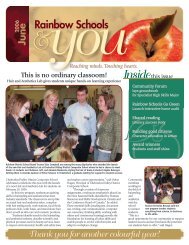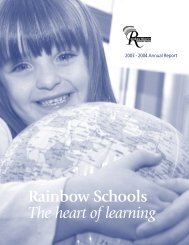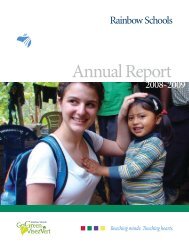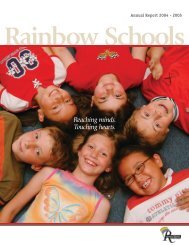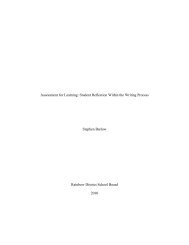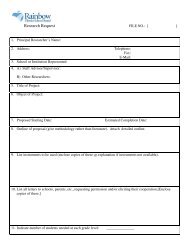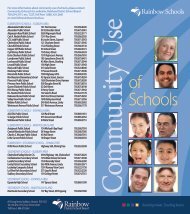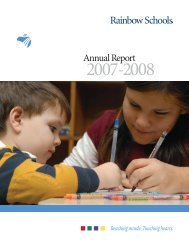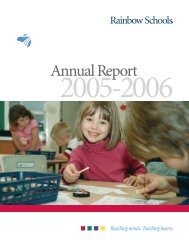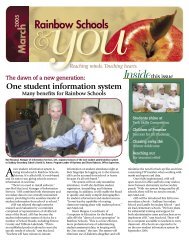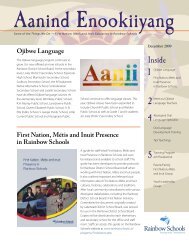Doing Mathematics with Your Child, Kindergarten to ... - EduGains
Doing Mathematics with Your Child, Kindergarten to ... - EduGains
Doing Mathematics with Your Child, Kindergarten to ... - EduGains
Create successful ePaper yourself
Turn your PDF publications into a flip-book with our unique Google optimized e-Paper software.
How high? How low? How much? How little?<br />
Estimation: An Important Mathematical Skill<br />
MEASUREMENT<br />
Measurement Matters<br />
Grade 4 <strong>to</strong> Grade 6<br />
Benefits<br />
Benefits<br />
When <strong>to</strong> round up or round down, how <strong>to</strong> keep track of a running <strong>to</strong>tal –<br />
soon these estimation strategies will become second nature <strong>to</strong> your child!<br />
Once your child understands how the metric system is organized and how<br />
the units relate <strong>to</strong> one another, conversions will be a snap!<br />
Tip!<br />
Friendly numbers are numbers that are easy <strong>to</strong> work <strong>with</strong> mentally,<br />
and children can use them <strong>to</strong> estimate an answer. What friendly<br />
numbers are helping your child <strong>to</strong> track the <strong>to</strong>tal when rounding <strong>to</strong> the<br />
nearest dime? Quarter? Dollar?<br />
• When you are shopping, have your child keep a running <strong>to</strong>tal of how much you are<br />
spending by using prices that he or she rounds up or rounds down. For a challenge, set<br />
a limit on the amount of money you will spend.<br />
• Give your child an imaginary budget <strong>to</strong> spend at his or her favourite s<strong>to</strong>re (flyers or<br />
online catalogues may be helpful). Without writing down the amounts, have your child<br />
choose items <strong>to</strong> purchase. He or she will have <strong>to</strong> use estimation <strong>to</strong> stay <strong>with</strong>in the<br />
budget. Then, have your child add up the actual costs. Did she or he stay <strong>with</strong>in the<br />
budget? For a challenge, help your child estimate any taxes.<br />
Tip!<br />
The metric system is organized like this:<br />
10 millimetres = 1 centimetre<br />
100 centimetres = 1 metre<br />
1000 metres = 1 kilometre<br />
Another way <strong>to</strong> think of the metric system is that the metre is the<br />
basic unit of length:<br />
A kilometre is 1000 metres.<br />
A centimetre is 1/100 metre.<br />
A millimetre is 1/1000 metre.<br />
With your child, look for situations involving metric measures, and discuss and<br />
compare them:<br />
• When cooking or baking, ask your child <strong>to</strong> help you discover what the<br />
measurements given in grams would be in kilograms (or the reverse).<br />
• When building something, ask your child <strong>to</strong> find what the measurements given in<br />
centimetres would be in metres.<br />
• When travelling, ask your child <strong>to</strong> find what the measurements given in kilometres<br />
would be in metres.<br />
18<br />
<strong>Doing</strong> <strong>Mathematics</strong> <strong>with</strong> <strong>Your</strong> <strong>Child</strong>, <strong>Kindergarten</strong> <strong>to</strong> Grade 6: A Parent Guide<br />
<strong>Doing</strong> <strong>Mathematics</strong> <strong>with</strong> <strong>Your</strong> <strong>Child</strong>, <strong>Kindergarten</strong> <strong>to</strong> Grade 6: A Parent Guide<br />
19



